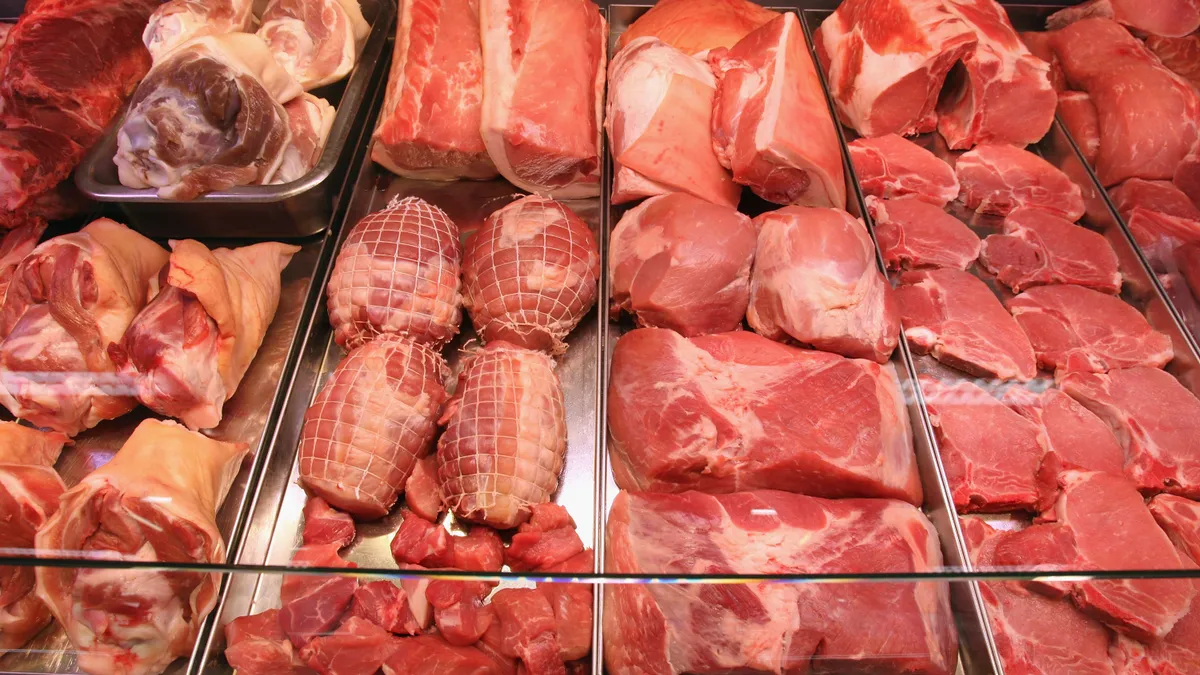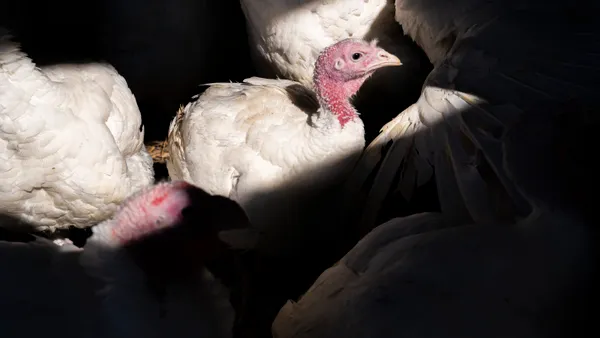Dive Brief:
-
Major meatpackers, including Tyson and Hormel, will face a class action lawsuit alleging the industry conspired to suppress plant worker wages after a federal judge declined to dismiss the case.
-
Chief U.S. District Judge Phillip Brimmer said in a 44-page ruling last week that the case against more than a dozen meatpackers will continue after hourly workers provided evidence that companies exchanged data on future compensation, not just current wages.
-
Meatpackers had argued the plant worker plaintiffs failed to provide direct or circumstantial evidence of a conspiracy, but Brimmer denied their efforts to dismiss. Spokespersons for defendants Hormel and Tyson declined to immediately comment about the case.
Dive Insight:
In the U.S. District Court of Colorado, a group of plaintiffs brought a class-action lawsuit against some of the largest red meat producing companies in November for allegedly conspiring to fix and depress worker wages with help from two consulting firms, Agri Stats, Inc. and Webber, Meng, Sahl and Company.
According to the 133-page complaint, defendants Hormel, Tyson Foods, JBS, Cargill and seven other processors account for about 80% of the beef and pork sold in the U.S. and have highly regimented processes for determining worker compensation.
Plaintiffs argued that defendants were allowed to compare compensation practices with each other to suppress wages through secret compensation surveys, secret annual meetings, direct email and phone conversations among executives, exchanging compensation data through Agri Stats and illegal “no poach” agreements.
After nearly a year of back-and-forth, Brimmer ruled last week to deny defendants’ motions for dismissal and proceed the case to trial. While the judge agreed with defendants' claims that exchanging information does not support claims of a sweeping conspiracy, Brimmer wrote that sharing data on future compensation “supports a plausible inference of an agreement to fix compensation.”
According to court documents, meat company executives would hold annual meetings, as well as “off-the-books” dinners, to discuss their compensation rates and survey results with each other.
After broiler chicken price-fixing claims surfaced in 2016, red meat executives allegedly became concerned and eliminated future data from survey reports. Meng also was instructed to participate in the entire meeting and roundtable discussions to avoid the appearance of collusion.
Meatpackers allegedly used Agri Stats and its monthly confidential reports to monitor effective worker wages across the industry, according to court documents. The Justice Department filed a separate antitrust lawsuit last week against Agri Stats and its role in influencing pork and poultry markets through its highly detailed reports.
The plaintiffs are hourly processing plant workers from various companies with operations in Iowa and Georgia. They are seeking compensatory damages through a trial by jury.











